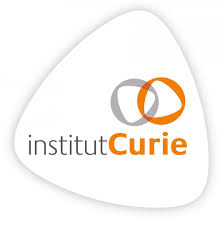- Back
- Location
- Anywhere
- Date Posted
- 19 Dec 2024

- Type
- PhD Project
- Anywhere
- 19 Dec 2024
PhD Position

NOTE: this position listing has expired and may no longer be relevant!
Position Description
The RNA-binding activity of glycolytic enzymes in melanoma
General information
Call 2020
Reference 2020-08-VAGNER
Keyword(s) RNA binding protein, mRNA translation, Glycolytic enzymes, Melanoma, Anti-cancer therapies
Director(s) and team
Thesis director(s) Stéphan Vagner
Research team RNA Biology, Signaling and Cancer
Research department UMR3348- Genome integrity, RNA and Cancer
Description of the PhD thesis project
Focus of the team: the team focuses on the role RNA-binding proteins in cancer biology and anticancer therapies (genome instability and genotoxic chemotherapy, oncogenic signaling pathways and targeted therapies, cancer-immune cells cross-talk and immunotherapy). The team uses a combination of approaches (biochemical analyses of RNA, proteins and their interactions, genome-wide analyses of RNA regulation (RNA-seq, 3’seq, polysome profiling) and RNA-protein interactions (iCLIP), analyses of cancer cell phenotypes in cell culture, tumor biology in vivo and patients’ tumors).
PhD project: In spite of the recent progress in the field of metastatic melanoma treatment, this cancer remains with a dreadful prognosis because resistance occurs in the majority of patients. Given that cancer cells rely on aerobic glycolysis for energy production, several drugs have been developed to target cellular metabolism. However, targeting metabolism may also affect immune cells function, preventing their contribution to tumor elimination. The metabolic status of tumor cells, mediated by the effects of a cascade of glycolytic enzymes (GE), is a critical parameter of melanoma biology. Recent data demonstrated that some GE could bind to mRNAs and influence their translation level.
In addition, the team has contributed to the demonstration that regulation of mRNA translation is involved in cancer hallmarks. We propose to explore the impact of GE on mRNA translation, highlighting a different perspective by which GE may affect melanoma biology.
The project focuses on the non-canonical RNA binding activity of GE, with the primary aim to identify mRNAs regulated at the level of translation by direct binding to GE. It will evaluate the potential anti- tumor effect of disrupting these interactions.
Beyond defining the functions of GE-mRNA interactions and their significance in melanoma cells, it is expected that new targets for alternative therapeutic modalities for cancer are identified.
International, interdisciplinary & intersectoral aspects of the project
International: Collaboration with international teams combining biochemical and systems-level approaches to investigate the connections between gene expression and cell metabolism, and their roles in human disease.
Intersectorial: The project will be developed in connection with an ongoing project of creation of a start-up company that aims to develop small molecule inhibitors of mRNA translation.
Interdisciplinary: Translational aspects with onco-dermatologists and collaborations with bioinformaticians.
Recent publications
1. Cerezo M, Guemiri R, Druillennec S, Girault I, Malka-Mahieu H, Shen S, Allard D, Martineau S, Welsch C, Agoussi S, Estrada C, Adam J, Libenciuc C, Routier E, Roy S, Désaubry L, Eggermont AM, Sonenberg N, Scoazec JY, Eychène A, Vagner S*, Robert C* (*co-last author). Translational control of tumor immune escape via the eIF4F-STAT1-PD-L1 axis in melanoma. Nat Med. 2018 Dec;24(12):1877-1886. doi: 10.1038/s41591-018-0217-1.
2. Newman M, Sfaxi R, Saha A, Monchaud D, Teulade-Fichou MP, Vagner S. The G-Quadruplex- Specific RNA Helicase DHX36 Regulates p53 Pre-mRNA 3′-End Processing Following UV-Induced DNA Damage. J Mol Biol. 2017 Oct 27;429(21):3121-3131. doi: 10.1016/j.jmb.2016.11.033. 7.
3. Malka-Mahieu H, Newman M, Désaubry L, Robert C, Vagner S. Molecular Pathways: The eIF4F Translation Initiation Complex-New Opportunities for Cancer Treatment. Clin Cancer Res. 2017 Jan 1;23(1):21-25. doi: 10.1158/1078-0432.CCR-14-2362 HnRNP
4. Cammas A, Lacroix-Triki M, Pierredon S, Le Bras M, Iacovoni JS, Teulade-Fichou MP, Favre G, Roché H, Filleron T, Millevoi S, Vagner S. A1-mediated translational regulation of the G quadruplex-containing RON receptor tyrosine kinase mRNA linked to tumor progression. Oncotarget. 2016 Mar 29;7(13):16793-805. doi: 10.18632/oncotarget.7589.
5. Boussemart L, Malka-Mahieu H, Girault I, Allard D, Hemmingsson O, Tomasic G, Thomas M, Basmadjian C, Ribeiro N, Thuaud F, Mateus C, Routier E, Kamsu-Kom N, Agoussi S, Eggermont AM, Désaubry L, Robert C, Vagner S. eIF4F is a nexus of resistance to anti-BRAF and anti-MEK cancer therapies. Nature. 2014 Sep 4;513(7516):105-9. doi: 10.1038/nature13572.
Expected profile of the candidate
Applicants should have a strong desire to explore RNA-protein interaction with molecular biology tools and should show solid capacity for independent and creative thinking. Background in molecular biology and cancer biology is strongly recommended. Background in bioinformatics is a plus but not compulsory.


